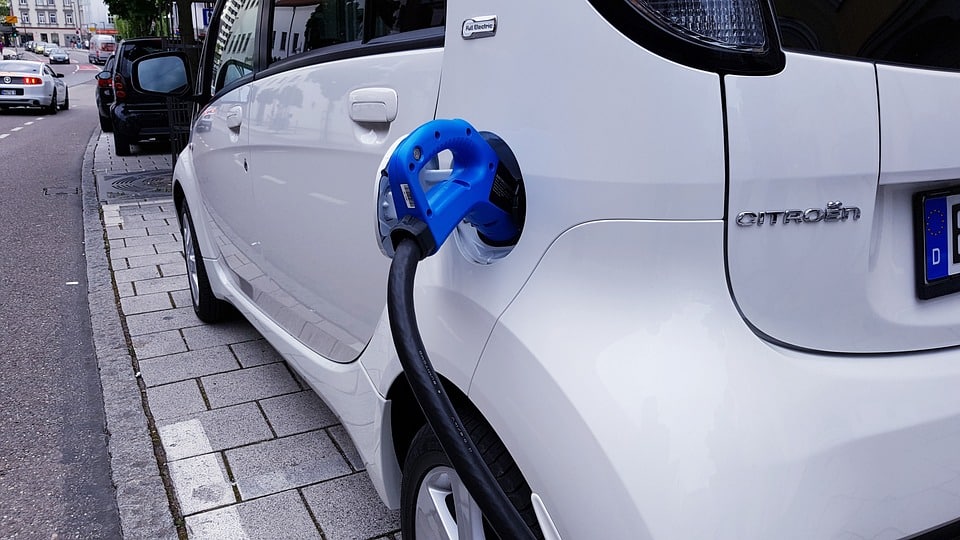In the race to go green, the public could end up facing long-term debt and restrictions on their freedom of movement
By Jean Christou
From Wednesday Cyprus will have a new government, one that many might think will bring about the change they voted for, or one they hope will move away from the policies of the Anastasiades administration.
Handling of the Cyprus issue aside, on the domestic front at least, any changes are likely to be cosmetic as the new government, like the previous one, will be tied to the Cyprus Tomorrow plan, also known as the EU’s Recovery and Resilience Plan (RRP).
Often touted as the ‘legacy of the Anastasiades government’, and ‘a plan for Cypriots by Cypriots’ the 1,000-page document is a blueprint laying out the future of almost all domestic policies including education, health, environment, transportation, agriculture and housing.
The RRP 2021-2026 is the child of the EU’s Green Deal, the grandchild of the Paris Climate Agreement and the great-grandchild of the UN’s Agenda 2030, which is being implemented globally and is binding on all governments that have signed up. It’s the roadmap to Net Zero by 2050.
Every EU country has an RRP, or equivalent in the case of the US and the UK. And they are not new. All EU members had a National Strategy Plan before 2020 but these were just rebranded and rushed out during the pandemic as ‘recovery plans’.
Cyprus’ 1,000-page RRP – a virtual utopian wish list – is full of grants and subsidies to ‘go green’ and improve people’s lives. But it’s sketchy on drawbacks such as how much it will impact ordinary people both in monetary terms and lifestyle changes.
It raises the question of how much people really will be willing to sacrifice to save the planet other than ditching plastic bags and straws or planting more trees? Will they be willing to spend their savings or go into debt to ‘green’ their homes, give up their cars and cut down on trips abroad? Will they be penalised if they don’t?
The Cyprus Mail posed some of these questions in writing to outgoing Finance Minister Constantinos Petrides. The answers were mainly stock responses replete with abstract terms such as “job creation” and “sustainability”, material from the plan itself. He did however confirm that for some of the changes, the public may not have a choice.
Because the scope of the RRP is vast, we have focused on housing and transportation as having the most direct impact on people’s finances. There are also the green taxes that are coming down the line but are not fixed yet, according to the minister.
In January the finance ministry carried out a focus group survey on the RRP asking people where they would like to see the money – as much as €4 billion in total – go.
Thirty-two per cent picked education, 30 per cent economy and 20 per cent health. Digitalisation ranked the lowest at 3 per cent, and just above that, environment at 5 per cent.
RRP spending is the inverse of this.
According to Petrides, the EU’s Recovery and Resilience Fund (RRF) stipulates that to accelerate the green and digital transitions each member state must dedicate at least 37 per cent of the expenditures to climate objectives and at least 20 per cent to digital.
Cyprus is going above and beyond, spending 41 per cent on the green transition and 23 per cent on digital “which exceeds the minimum required”.
Asked about the focus group results, he said: “The survey results, carried out… were by no means surprising. Cypriot people are rightfully focusing their concerns on sectors that affect their everyday life, such as education, economy and health.”
He said funds allocated to health amount to €69.6m and education €94m. It sounds like a lot but by comparison, health and education are each being allocated only around 7 per cent of total funding. The green and digital transition projects by contrast are being allocated €447.6m and €89.4m respectively.

Electric cars are very expensive and the subsidy schemes are not extensive enough
It’s not that the plan or everything in it is negative. Many reforms are necessary in Cyprus, and no one is going to tell a pollster that they don’t want to save the planet because, in principle at least, everybody does. It is how much will have to be sacrificed that remains to be seen.
A poll in the UK on their Net Zero plan showed that the more details people had on what it could cost them personally, the more support the plan lost, especially when it came to ‘greening’ homes and parting with their ‘dirty’ cars. The latter is slated in the EU, the UK and the US in tandem for 2035, just 12 years away. Some in the UK are calling for a referendum on the country’s Net Zero plan.
In Cyprus, there is no real debate on these issues.
There is no doubt that ‘greening a home’ makes sense in a sunny country like this and there will be subsidies, but will they be enough? High-income earners will not have a problem, and according to the RRP, the vulnerable will be taken care of generously, as they should.
But most people fall in between those two categories. Many retirees and middle-income households, already struggling with inflation, may find themselves having to get a so-called ‘green mortgage’ and some may not even be around long enough to see a return in terms of lower energy costs. Even if, as Petrides said, top-certified homes use 75 per cent less energy, energy savings would be negated by having to simultaneously repay a green loan over a long period.
And the thing is, there won’t be a choice. Upgrading the worst performing homes to start with will be mandatory, Petrides confirmed. According to the EU, all G-class buildings must be upgraded to an F by 2030. And an F is still a long way from an A on what the EU has termed the ‘Renovation Passport’.
“As most of the houses were built before the implementation of minimum energy performance requirements, most of them are of low energy performance,” said Petrides.
He said these homeowners were already impacted by high energy bills and a gradual property value reduction. Without upgrading, “one would expect the old low-energy buildings will steadily lose value,” he said.
So if people can’t afford to upgrade voluntarily, they will be forced to or their house will be near worthless, or they could ask the EAC to remove their electricity meters and ask for an A-class cert for zero emissions.
Petrides conceded that even though the subsidies offered by the ministry of energy “contribute significantly to resolving the issues for some households”, they would “not be enough to finance a big-scale energy upgrade of the building stock”.
“Therefore, fiscal and tax reforms are being assessed to mobilise private renovation funding complementing subsidy schemes while focusing on supporting the energy poor,” he said. Indeed, the cabinet approved some such tax breaks for businesses on Wednesday.
The second-biggest challenge for ordinary people will be transportation. Again, the intentions are good, but realistically, any car owner who foresees a direct switch from a petrol car to electric vehicle (EV) from 2035 and on could find themselves without any private transport at all.
At the moment EV’s are expensive. Some people can afford them. Others can afford them with a government subsidy. Still others, mainly low-income people who can only afford an old banger for a couple of thousand euros, could be left high and dry.
Petrides played down the cost saying the price of EVs spans a wide range. “Despite the general perception that the purchase prices of these vehicles are high, there are vehicles whose cost, after depositing the above subsidy, is comparable to the cost of the corresponding vehicle with an internal combustion engine,” he said.
That may be, but cost might not be the only issue in the end. A report from California’s University College Davis in January estimated that even with maximum production of EVs, 70 per cent of Americans will have to go without any car at all in order to meet global emissions targets.
Direct replacement of a fuel car for EV would require “an almost 200 per cent increase in the number of lithium mines by 2035 to meet expected demand”, the report said. This means digging up the planet, resulting in more slave labour in poor countries to mine for the rare metals. It’s already happening.
This is known, which is why the ultimate goal is to get cars off the roads altogether as much as possible through fuel taxes, emissions-free zones and the 15-minute cities where people will be expected to confine themselves to their neighbourhoods and have their needs met within a space where they can walk or cycle. Here, car use will be monitored by smart sensors with fines for rule-breakers as Oxford has just done and is now experiencing a public backlash. Paris has also declared itself a 15-minute city and London is in the midst of a row over it.
Asked about this, Petrides said that the transport ministry was “considering several best practices that apply in EU countries to take the most appropriate measures to enable our cities’ accessibility”. In other words, it’s coming.
He did not answer as to whether he thought this was in essence a limitation on freedom of movement, a basic tenet of the EU acquis. Instead, he merely offered promises of a great new public transport system to “enable the transition to a future where cars will be needed less”.
No one would disagree that fewer cars on the roads would be a good thing, but the government is running out of time to make public transport “the preferred option” – to use the minister’s words. Otherwise, if EV production can’t meet the current demand for private transportation, only the few will enjoy the privilege, including no doubt those who make the rules.
The bottom line is that despite all of the good intentions, the RRP, could in theory give more control over people’s everyday lives to the government when it comes to how, where and when they travel and move around, how they live, what they eat and what they can buy. The coming programmable digital euro will also be able to limit spending on the ‘wrong things’, or for exceeding carbon allowances.
Some might argue, and indeed they do, that controlling every aspect of people’s lives is the only way to save the planet, and the reason it must be done through removing options or punishing transgressions is because people have not evolved enough to control themselves, which has led to overconsumption and the climate pickle.
Petrides does not foresee any problems implementing the RRP and believes the social partners will be on board “regardless of any short-term and limited discomfort”. He did not elaborate on what those discomforts might be. Perhaps the new government will. It’s very unlikely.






Click here to change your cookie preferences